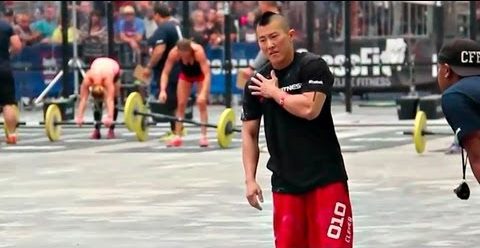
Various types of surgeries have become more accessible than ever through the internet. You do not have to wait long lines to schedule your surgery when there are online clinics available for appointment like Vera Clinic. You just have to find the right one to get the surgery done the way you wanted.
Exercise is one of the many ways to get your body back in track as a part of post-surgery recovery. And it’s fair to say many functional fitness athletes are eager to get back into the CrossFit box as soon as possible after surgery to maintain their fitness and get their body back to normal faster.
However, it’s critical that people realise, after surgery, your body is limited in what you can do. In most cases, you can’t do normal exercises like you once did before the abscission. Surgery involves many procedures, and this puts a limit on the kind of activity you should be doing. You can’t simply exercise without consideration, as it might worsen your condition.
Post-Surgical Exercises
Exercise helps to ease pain and develop muscles much faster than staying on the bed. Though exercise is a crucial part in the recovery process, careful monitoring is needed for patients in doing such activity. With the medical professional’s aid, you can ease up your daily routine and monitor your progress daily.
Do’s
Different surgeries have different limitations, but there are common practices that doctors agree on. The critical aspect in these activities is proper communication between the doctor and the patient; in this regard, the doctor should know the patient well, and the patient should listen to the doctor.
Here are a few of the common practices regarding exercising after surgery:
-
Do Seek Help From Medical Professionals
It is not always good to do most things on your own, especially after surgery. When exercising, it is best to seek help from nurses or doctors and make them as your exercise buddy. You do not only help yourself from getting weaker, but the doctors and nurses can monitor your progress more closely.
-
Do Start Slowly
A few hours, or a few days, after the surgery, nobody expects you to do your daily routine immediately. Most people, if not all, is expecting you to be weak, and regain your strength slowly. This is the reason why monitoring your progress is essential, as it allows you to determine which certain parts you need to develop. Then, you can focus on the parts that have slower progress. Getting back your strength takes time, and you need to start slowly to gain momentum.
-
Do Set Goals
When you do the same routine, your muscles become lazy or they require more stress to strengthen. You need to change things up a bit. Though not immediately, but slowly add up to your exercise routine to balance things out. Doing the same routine daily will overuse your muscles and heal slower than necessary.
-
Do Choose Exercise Routine that Doesn’t Overexert You
There are a lot of exercise routines you can do to start your day, but only you can decide which ones you enjoy doing. Though medical professionals choose the best ones for you, you can make suggestions in doing a particular routine. It is challenging to handle someone who needs exercise but hesitant doing it.
-
Do Cool Down
It is critical to know your limits and to know when to stop. Exercising is a tiring activity, no matter how quick the routine will be. After each routine, you need to take time to rest your muscles and regain strength. Don’t forget to set rest periods between sets, and rest days between sessions.

Don’ts
Many patients like to make their own rules regarding a particular aspect in their lives, and many of them didn’t end well. Nothing is more important than listening to your doctors’ advice regarding your activities. You can make suggestions, rather than doing something on your own without consent.
Here are some reminders to keep you away from unwanted complications:
-
Don’t Rush Things
One of the most important points to remember is your attitude towards exercising. Many people disregard the fact that no one should rush to exercise, especially after surgery. Patients thought that they would regain strength much faster if they exercise sooner, but it actually slows recovery.
-
Don’t Exercise Without Preparing Yourself
Doctors observe that patients exercise without doing self-evaluation first. People tend to forget that exercising is a serious activity and they should only continue when their body is in condition. Without checking your state, you’d risk yourself to an injury or maybe worse.
-
Don’t Neglect Proper Diet
Medical professionals are always there to help you make your progress gradually. One thing that you should never reject listening is their advice about your diet. It is crucial that you keep yourself healthy and eating the right diet at the right time.
-
Don’t Make Competitions
You may be a CrossFit Games athlete or a fitness instructor, but when you get your surgery, competition is not something helpful. You need to take your time and exercise with care. Competing with other people may put your life at risk, and you might even be put back in the hospital for a more severe reason.
The Bottom Line
When deciding to exercise after surgery, it is best to consult with the surgeon or the doctor in charge. You do not want to jump right into a complicated exercise plan, especially after a complicated medical procedure. The goal of exercising is to regain the strength of your muscles until it’s capable of daily activity.
Many people do not know the importance of linking exercise and appetite. When exercising, it is very important to take in important supplements to your body to maintain a healthy lifestyle. Aside from that, always keep in mind to take your time and never neglect any of your doctor’s advice.

















Follow Us